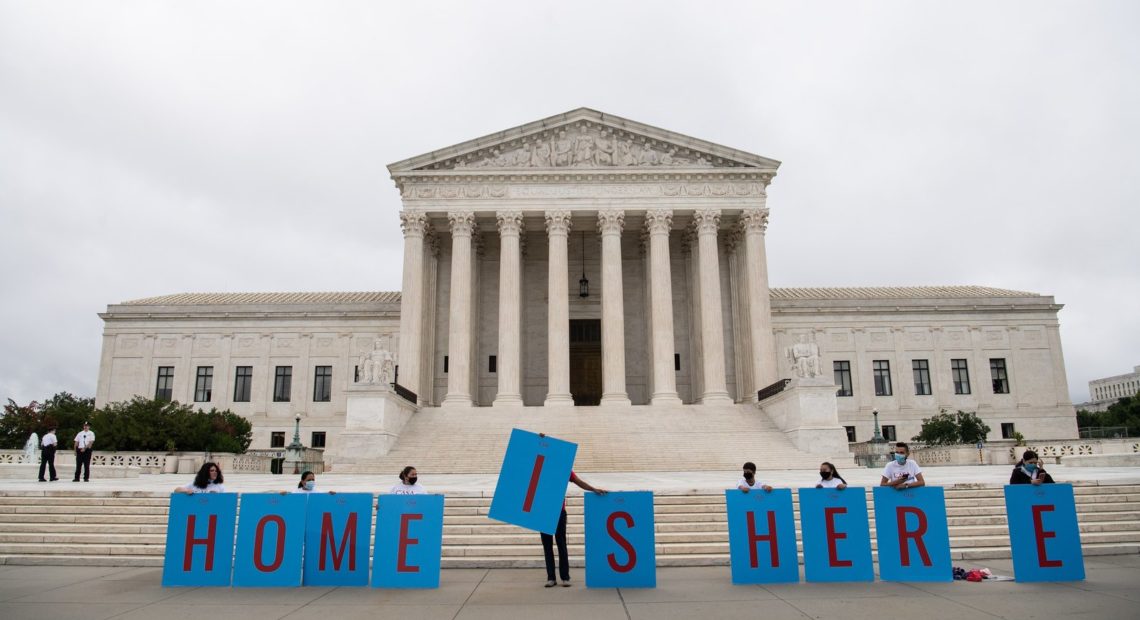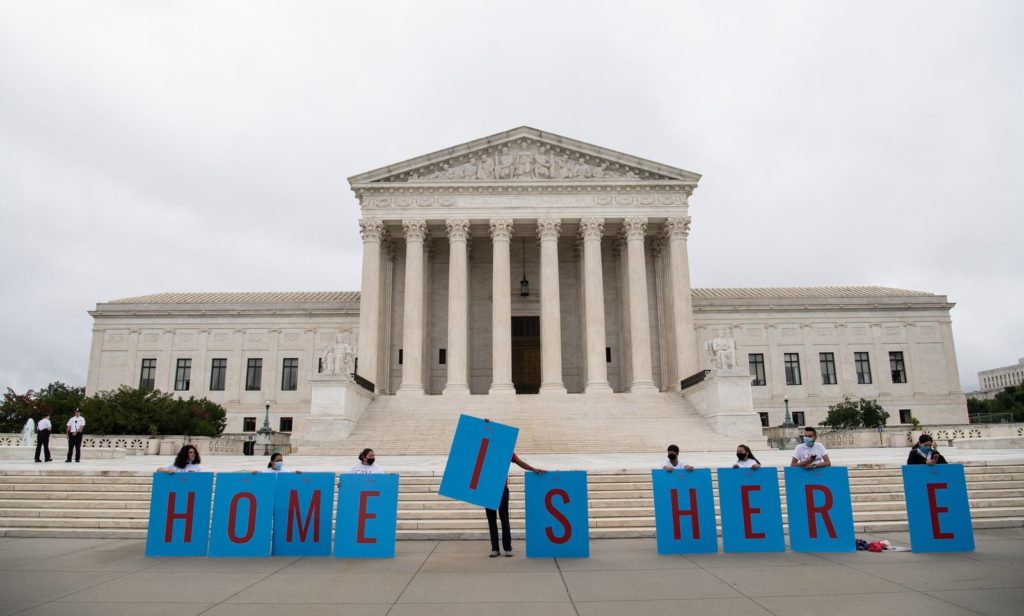
Supreme Court Rules Against Trump Administration In DACA Case, But Program’s Fate Still Uncertain
BY NINA TOTENBERG
A narrowly divided U.S. Supreme Court extended a life-support line to some 650,000 so-called DREAMers on Thursday, allowing them to remain safe from deportation for now, while the Trump administration jumps through the administrative hoops that the court said are required before ending the program.
The vote was 5-4 with Chief Justice John Roberts casting the decisive fifth vote that sought to bridge the liberal and conservative wings of the court.

Activists hold a banner in front of the Supreme Court in Washington, D.C., on Thursday as the court rejected the Trump administration’s move to rescind the Deferred Action for Childhood Arrivals program. CREDIT: Nicholas Kamm/AFP via Getty Images
Roberts and the court’s four liberal justices said the Department of Homeland Security’s decision to rescind the Deferred Action for Childhood Arrivals program, or DACA, was arbitrary and capricious under the Administrative Procedure Act. (Read the decision here.)
In his opinion, Roberts wrote: “The appropriate recourse is therefore to remand to DHS so that it may reconsider the problem anew.”
President Trump dismissed the ruling as “politically charged,” turning it into a rallying cry for the 2020 election and the opportunity to appoint more conservative justices. The DACA decision follows another major ruling earlier in the week that granted employment protections for LGBTQ people.
Begun in 2012, the DACA program gave temporary protection from deportation to qualified individuals brought to the U.S. illegally as children. Under the program, the DREAMers were allowed to work legally and apply for college loans if they met certain requirements and passed a background check.
President Trump sought to end the program shortly after he took office, maintaining that it was illegal and unconstitutional from the start.
But he was blocked by the lower courts and appealed to the Supreme Court, where Thursday the justices divided over both substance and timing.















